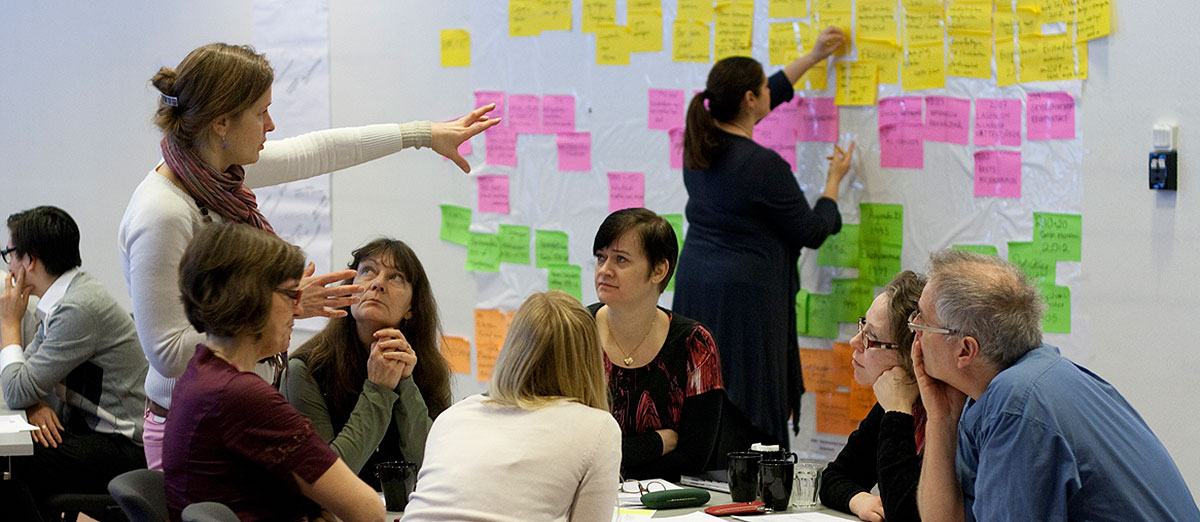Bildtext får vara max två rader text. Hela texten ska högerjusteras om den bara ska innehålla fotobyline! Photo: B. Christensen/Azote
URBAN PLANNING
Seven resilience principles for the digital city

In a paper published in Cities, researchhers apply the seven principles for building resilience when analyzing a rapidly growing urban, digital environment. The authors believe the seven principles of resilience can help urban planning and digitalization in specific ways. Photo: @joshuaearle Unsplash
- Digitalization of cities present new security and risk management challenges
- Cities, like ecosystems, are complex adaptive systems
- The seven principles for building resilience in social-ecological systems offer important insight for urban planners in building resilient digital cities
Cities resemble ecosystems in a number of ways, and urban planning has much to gain from applying resilience thinking
UNDERSTANDING COMPLEX SYSTEMS: Digitalization of city infrastructures and services can result in improved efficiency, economic benefits, and services that can improve the quality of life for most urban citizens.
But wiring up cities also represents a brand new set of security risks and management challenges. Just think about what happened to New York City after Hurricane Sandy in 2012: it hit the city’s Information and Computer Technology (ICT) networks so hard it lead to shortages of food, cash and fuel.
Lessons to draw
In a paper published in Cities, centre researchers Johan Colding and Stephan Barthel together with ICT consultant Magnus Colding apply the seven principles for building resilience when analyzing a rapidly growing urban, digital environment.
Colding and his colleagues believe resilience thinking has a lot to offer in the concept of ’digital cities’.
It has become a fundamental framework for understanding complex adaptive systems, from cells to ecosystems, economic systems and societies. As cities become more digitalized there are lessons to draw from this.
Johan Colding, lead author
Applying resilience in the digital city
The authors believe the seven resilience principles can help urban planning and digitalization in specific ways:
- Maintain diversity and redundancy: Resilient digital city networks should have built-in redundancy to survive critical system failures. This includes decentralized cloud-based solutions, multiple access points for wireless connections, redundant power supplies. There is also a need to maintain analogue solutions, as a back-up and as a democratisation route, to ensure access for all and in case of failure.
- Manage connectivity: cities require digital systems that can cope with disturbance while maintaining important functions.
- Manage slow variables and feedbacks: Resilience management should not only focus on shocks and extreme events but also on slow change and less visible dynamics. Like biological systems, ICT-networks are susceptible to slow disturbances. For example, slow viruses that spread through the system by hijacking devices connected to the “Internet of things”.
- Foster complex adaptive systems thinking: Adopting complex adaptive systems thinking approach in the context of managing a digital city means accepting that unpredictability and uncertainty is part of management. Policy makers responsible for ICT development need to foster this type of thinking to better understand the interdependencies and relationships between humans and the digital-driven infrastructure systems.
- Encourage continuous learning: Internet-based communication networks should strive to include “evolvability”, in order to refine future behaviour and improve the response to challenges.
- Broaden participation: While a broader stakeholder involvement is desirable when managing ecosystems, it is riskier when it comes to digital cities as it could lead to accidents and mistakes. Instead, for digital cities self-organizing and autonomic behavior is necessary for network resilience.
- Promote polycentric governance: It is important to create governance structures that ensure problems can be addressed swiftly by the right people at the right time and at the right level.
Co-author Stephan Barthel concludes: “Urban planners needs to acknowledge the complexity of a digital city. The principles for building resilience in social-ecological systems offer important guidance in how to build digital cities where security risks are managed proactively.”
Colding, J., Colding, M., Barthel, S. 2020. Applying seven resilience principles on the Vision of the Digital City. Cities Volume 103, August 2020, 102761










